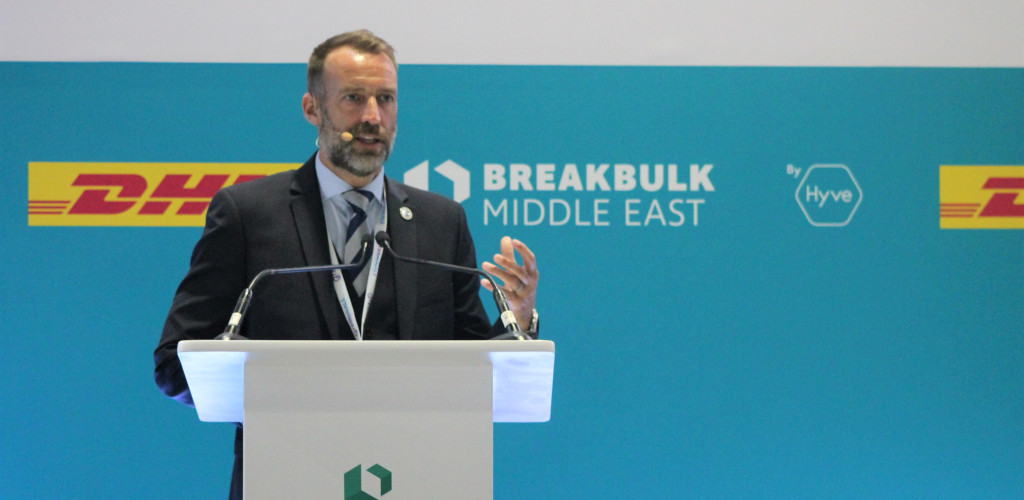Investment in Renewables, Power and Cleantech Add to Project Outlook
 By Simon West
By Simon West
Fossil fuels continue to dominate the project landscape in the Middle East, accounting for more than 70 percent of total energy projects across the region.
That was a key message from Ryan McPherson, regional director for the Middle East, Africa, Russia and CIS at the Energy Industries Council, during a breakbulk and project market outlook session at Breakbulk Middle East in Dubai.
The total number of projects being tracked by the EIC, the UK’s largest energy supply chain trade association, are worth more than US$630 billion, with Saudi Arabia and the UAE housing about a third of the market each. Of that total, US$457 billion has been earmarked for upstream, downstream and midstream projects.
“Oil and gas is still the dominant player across the region,” McPherson said, with high crude prices helping to make companies across the GCC “more buoyant”. Geopolitical events meanwhile, such as the conflict in Ukraine, have also favoured hydrocarbons, as nations double down on securing their basic energy needs.
World-scale construction projects highlighted by the EIC include the Ruwais Derivatives Park in Abu Dhabi and the Ras Al Khair crude oil-to-chemicals project in eastern Saudi Arabia. Both projects are calling for investments of US$20 billion.
Despite the dominance of fossil fuels in the energy mix, the region can look forward to some major investment in renewables, transmission distribution and other energy transition technologies.
Solar PV is the prevailing energy form in the renewables sector, accounting for about 58 percent of estimated capex in the region by the end of the decade. Solar CSP and energy from waste account for 16 percent and 13 percent, respectively.
Investment in onshore and offshore wind account for 9 percent and 4 percent.
“The GCC countries are strategically positioning themselves to utilize their renewable capacity domestically while continuing to export hydrocarbons post-Covid,” McPherson said. “The industry will continue to leverage its growing renewables potential plus natural gas reserves which are becoming increasingly important to transition away from liquid fuel power plants.”
Check out our interview with McPherson at Breakbulk Middle East:
